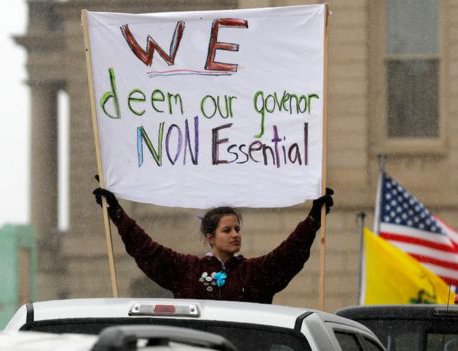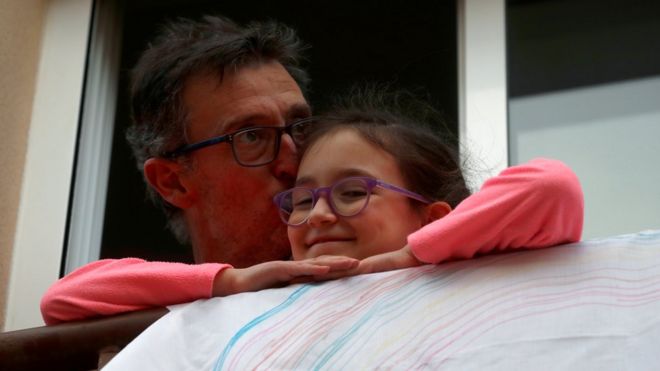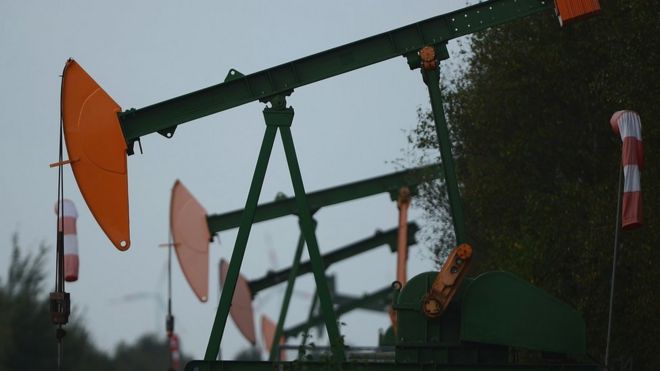Live Streaming
Program Highlight
Company Profile

International News (601)
Coronavirus: Air France-KLM Secures Billions in Government Aid
Written by Ani HasanahPresident of Uzbekistan: Concerns of Social Protection for the Nation.
Written by Ani HasanahApril
Coronavirus: Congress passes $484bn economic relief bill
Written by nuke
The US Congress has passed a new Covid-19 relief package totalling $484bn, the fourth aid bill to clear Congress in response to the pandemic. The legislation, approved 388-5 by the House of Representatives, tops up a small business aid fund, while funding hospitals and testing. President Donald Trump said he would enact the bill, which passed the Senate unanimously on Tuesday. The US has over 845,000 confirmed cases of the virus and 46,800 deaths. Last month, Washington enacted the largest economic stimulus package in US history, with $2 trillion in coronavirus aid//BBC
April
Coronavirus: First patients injected in UK vaccine trial
Written by nuke
The first human trial in Europe of a coronavirus vaccine has begun in Oxford. Two volunteers were injected, the first of more than 800 people recruited for the study. Half will receive the Covid-19 vaccine, and half a control vaccine which protects against meningitis but not coronavirus. As quoted by BBC.com, the design of the trial means volunteers will not know which vaccine they are getting, though doctors will. The vaccine was developed in under three months by a team at Oxford University. Sarah Gilbert, professor of vaccinology at the Jenner Institute, led the pre-clinical research. The vaccine is made from a weakened version of a common cold virus, known as an adenovirus, from chimpanzees that has been modified so it cannot grow in humans//BBC
April
Counter export ban, barriers on medical goods during pandemic: APEC
Written by nuke
The Coronavirus disease 2019 (COVID-19) is a global pandemic of colossal magnitude that has impacted the health and safety of billions and has long-term economic and social repercussions. This challenging scenario is a time for APEC economies to relook the trade policy response to ensure that it supports health systems across the region. Taking into account that the trade policy is a tool for fighting the pandemic, Director of the APEC Policy Support Unit Denis Hew suggested, that it is time for countries to lift export bans and lower barriers on medical goods. Hew said, saving lives is, the most pressing priority right now. Finding innovative economic solutions to this dilemma cannot wait until the lockdowns are lifted and the health crisis abates//Ant
April
US Oil Prices Turn Negative as Demand Dries up
Written by Ani HasanahThat means oil producers are paying buyers to take the commodity off their hands over fears that storage capacity could run out in May.
Demand for oil has all but dried up as lockdowns across the world have kept people inside.
As a result, oil firms have resorted to renting tankers to store the surplus supply and that has forced the price of US oil into negative territory.
The price of a barrel of West Texas Intermediate (WTI), the benchmark for US oil, fell as low as minus $37.63 a barrel.
"This is off-the-charts wacky," said Stewart Glickman, an energy equity analyst at CFRA Research. "The demand shock was so massive that it's overwhelmed anything that people could have expected."
The severe drop on Monday was driven in part by a technicality of the global oil market. Oil is traded on its future price and May futures contracts are due to expire on Tuesday. Traders were keen to offload those holdings to avoid having to take delivery of the oil and incur storage costs. (BBC)
April
Middle East Braces for Bleak Ramadan as Virus Threat Lingers
Written by Ani Hasanah
Muslims across the Middle East are bracing for a bleak month of Ramadan fasting as the threat of the COVID-19 pandemic lingers.
Ramadan is a period for both self-reflection and socializing. Believers fast from dawn to dusk and then gather around a family or community meal each evening of Islam's holiest month, which begins later this week and ends with Eid al-Fitr festivities.
But this year, the fast-spreading novel coronavirus threatens to dampen Ramadan like never before, with millions locked down across the Middle East -- from Saudi Arabia and Lebanon to the battle zones of Libya, Iraq, and Yemen.
More dispiriting for many devout Muslims is the banning of congregational worship, including taraweeh nighttime prayers, in mosques across the region, with many closed in a bid to slow the spread of the virus.
Several countries' religious authorities, including Saudi Arabia's Grand Mufti Abdulaziz al-Sheikh, have ruled that prayers during Ramadan and Eid be performed at home.
"Our hearts are crying," said Ali Mulla, the muezzin who gives the call to prayer at Mecca's Grand Mosque.
"We are used to seeing the holy mosque crowded with people during the day, night, all the time... I feel pain deep inside."
In recent weeks, a stunning emptiness has enveloped the sacred Kaaba -- a large black cube structure draped in gold-embroidered cloth in the Grand Mosque towards which Muslims around the world pray.
The white-tiled area around the Kaaba is usually packed with tens of thousands of pilgrims.
Ramadan is considered an auspicious period to perform the year-round Umrah pilgrimage, which Saudi authorities suspended last month.
It is likely the larger hajj pilgrimage, set for the end of July, will also be canceled for the first time in modern history after Saudi Arabia urged Muslims to temporarily defer preparations. (AFP)
April
Coronavirus: US Faced with Protests amid Pressure to Reopen
Written by Ani Hasanah
Protesters have taken to the streets in states across the US, demanding that governors reopen economies shut by the coronavirus pandemic. Rallies in Arizona, Colorado, Montana and Washington state took place on Sunday, following earlier protests in half a dozen states.
Agitation for easing restrictions has grown, despite the risk of a COVID-19 resurgence posed by reopening too soon.
US President Donald Trump has signaled support for the protests.
The US has become the center of the COVID-19 crisis, with over 735,000 cases and some 40,000 deaths - but signs have emerged that it is reaching the apex of the outbreak and that infection rates are slowing in some states.
Governors in several states have begun discussions to plan to reopen amid signs of the slowdown, but other regions remain under strict lockdown.
California Governor Gavin Newsom was the first in the nation to issue a state-wide stay home order, shuttering the country's most populous state since 19 March. Neighboring west coast states Washington and Oregon followed suit days later, putting their combined 11.5 million residents under a stay at home order since 23 March.
New York Governor Andrew Cuomo announced this week that the state would extend its stay home measures until 15 May. Speaking at his daily virus briefing on Sunday, Cuomo urged caution to residents, beset with "cabin fever" and desperate for their state to reopen.
"We still have to make sure we keep that beast under control," Cuomo said. "As we all get very eager to get on with life and move on."
"This is the only halftime in this entire situation."Trump, a Republican, appeared to endorse protests against strict lockdown measures, saying on Friday that orders in place in Minnesota, Michigan, and Virginia were "too tough".
The measures are needed to curb the spread of the virus.
Washington Governor Jay Inslee called the president's support of the protesters "dangerous", tantamount to encouraging "insubordination" to state laws.
"To have an American president to encourage people to violate the law, I can't remember any time in my time in America we have seen such a thing," he said on ABC News on Sunday. (BBC)
April
Coronavirus: Spanish PM Promises to Ease Confinement of Children
Written by Ani Hasanah
Spanish children have been kept indoors since 14 March, under strict measures to curb the spread of Covid-19.
Now Prime Minister Pedro Sánchez aims to relax the rule on 27 April so they can "get some fresh air".
Barcelona Mayor Ada Colau, who has young children herself, this week pleaded with the government to allow children outside.
Spain has seen more than 20,000 deaths since the start of the pandemic and almost 200,000 reported cases.
However, the main lockdown measures remain in place, with adults only allowed out to visit food shops and pharmacies or work considered essential. Children have been barred from leaving their homes completely.
Spain's eight million children have already spent five weeks confined to their homes and there has been growing unease at the risk to their health.
Other countries such as Denmark have begun opening up schools for under-11s while Norway is set to reopen kindergartens on Monday.
Germany will reopen some schools on 4 May although the most populous state will begin opening up from Monday.
Sweden has kept its schools open throughout the crisis. However, none of these countries has been as badly hit by the virus as Spain.(BBC).
April
Trump: Some States to Begin Lifting Coronavirus Restrictions in Coming Days
Written by Ani HasanahUS President Donald Trump said on Saturday, April 18 that Texas and Vermont will allow certain businesses to reopen on Monday, while still observing coronavirus-related precautions and Montana will begin lifting restrictions on Friday.
"We continue to see a number of positive signs that the virus has passed its peak," Trump told reporters at a daily briefing.
Some state governors have warned that they will not act prematurely to reopen their economies until there is more testing for the virus, however.
Business leaders have also told Trump the country needs to have widespread testing in place before their companies can return to normal operations.
On Saturday, Trump said "our testing is getting better and better," but offered no concrete evidence.
On Saturday morning, Governor Andrew Cuomo of New York, epicenter of the U.S. epidemic, said his coronavirus-battered state, may finally be past the worst of the health crisis there.(Reuters).




 The price of US oil has turned negative for the first time in history.
The price of US oil has turned negative for the first time in history.